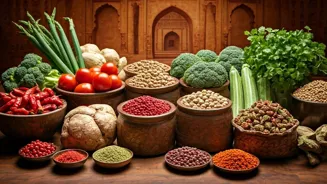Nutritional Nirvana?
Vegan diets, packed with fruits, vegetables, and legumes, offer rich nutritional benefits. They can be high in fiber, vitamins, and minerals, potentially
aiding in overall health. However, careful planning is essential to ensure you're getting all essential nutrients, like vitamin B12, which is crucial in India.
Who Should Consider?
Veganism may suit those prioritizing ethical consumption, environmental sustainability, or specific health goals. In India, many embrace vegetarianism, so the shift to veganism might seem like a natural progression for some. For others, the availability of plant-based options will also be a key consideration.
The Sustainability Factor
Staying vegan long-term presents challenges, especially in India. Concerns include finding affordable and diverse plant-based options, particularly in smaller towns. Maintaining a balanced diet and social situations (think festive feasts!) can also require careful planning and commitment.
Are There Concerns?
Potential concerns include nutrient deficiencies (like B12, iron, and calcium), which must be addressed. Additionally, access to vegan-friendly foods across India and the social dynamics of eating out or attending events, may present challenges. However, these can be managed with informed choices.
A Sustainable Choice?
Ultimately, the sustainability of a vegan diet in India depends on individual circumstances, commitment, and careful planning. While offering potential health and ethical benefits, it requires addressing nutritional needs and navigating the local food environment to make it a long-term success.













